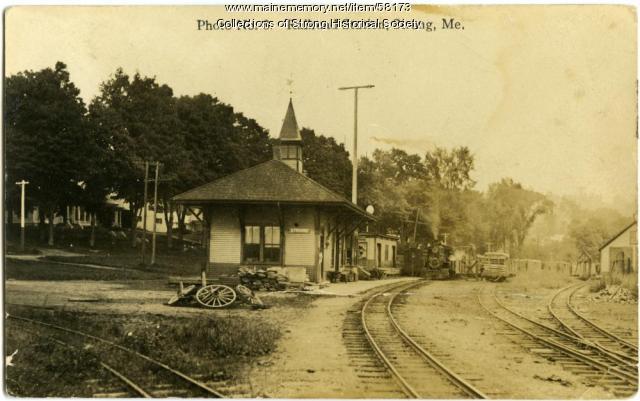Keywords: Narrow Gauge Engine
Item 80854
Replica of Monson Narrow Gauge Engine Number 4, 1972
Contributed by: Monson Historical Society Date: 1972 Location: Monson Media: Photographic print
Item 80855
The Narrow Gauge Engine Number 4, Monson, ca. 1930
Contributed by: Monson Historical Society Date: circa 1930 Location: Monson Media: Photographic print
Exhibit
Paper has shaped Maine's economy, molded individual and community identities, and impacted the environment throughout Maine. When Hugh Chisholm opened the Otis Falls Pulp Company in Jay in 1888, the mill was one of the most modern paper-making facilities in the country, and was connected to national and global markets. For the next century, Maine was an international leader in the manufacture of pulp and paper.
Exhibit
Lincoln County through the Eastern Eye
The Penobscot Marine Museum’s photography collections include nearly 50,000 glass plate negatives of images for "real photo" postcards produced by the Eastern Illustrating and Publishing Company of Belfast. This exhibit features postcards from Lincoln County.
Site Page
Strong, a Mussul Unsquit village - The Railroad
"… would be too costly, so they used a “narrow gauge” system for smaller engines, with less expensive rails, ties, and spikes."
Site Page
Strong, a Mussul Unsquit village - "Fly Rod" Crosby - Page 1 of 3
"… and New York, where she advocated for the Narrow Gauge Railroad as a means of accessing bountiful fishing and hunting grounds in the Western Maine…"








